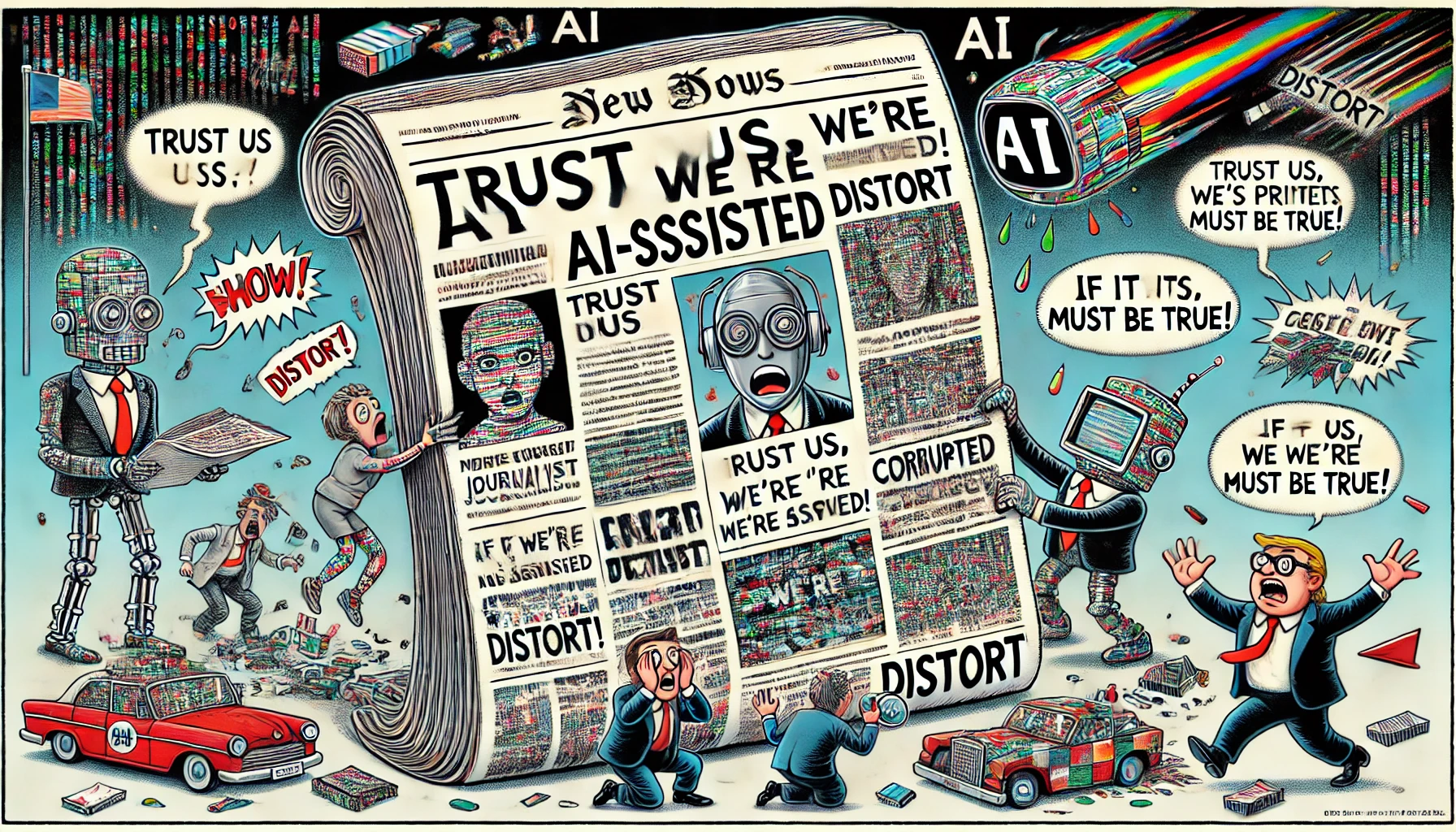The ink had barely dried on his latest article when the shocking revelation surfaced: a Wyoming reporter had been using artificial intelligence not to enhance, but to fabricate reality itself. This incident has stirred significant discussions regarding the ethical boundaries of AI in journalism, raising concerns over media integrity and the spread of misinformation.
The Incident
The tale of this Wyoming reporter, whose actions have sent ripples across the journalism community, is both cautionary and reflective of the ethical dilemmas posed by modern technology. According to recent reports, the reporter was discovered using artificial intelligence to generate fake quotes and fabricate stories, leading to his resignation. This revelation came to light when a competitor uncovered the deceit, prompting a wave of scrutiny within media circles.
In a surprising turn of events, the reporter admitted to using generative AI tools, akin to ChatGPT, to create fabricated quotes for his articles. This unethical practice not only led to his resignation but also sparked a broader conversation about the role of AI in journalism. The incident underscores the importance of maintaining ethical standards in reporting, especially in an era where AI technologies are becoming increasingly accessible.
Implications for Journalism
The ethical implications of using AI in journalism are profound. As AI tools become more sophisticated, the potential for misuse in creating misleading or entirely false narratives is a growing concern. The incident in Wyoming highlights the urgent need for journalists to adhere strictly to ethical guidelines to preserve public trust in the media. The proliferation of AI-generated content poses significant challenges to the integrity of news reporting, as it can easily lead to the spread of misinformation.
Public trust in media is already at a precarious point, and incidents like this further erode confidence. It is imperative for media organizations to implement stringent checks and balances that prevent the misuse of AI technologies. As AI continues to evolve, so too must the frameworks that govern its application in journalism, ensuring that truth and integrity remain at the forefront.
AI’s Role in Modern Newsrooms
AI’s role in journalism is not inherently negative. It offers numerous benefits, such as automating routine tasks, analyzing large datasets, and even assisting in investigative reporting. However, as highlighted by this case, the potential for misuse is significant. Media experts have pointed out the necessity of maintaining ethical standards while embracing AI, ensuring that these technologies are used to augment, rather than undermine, journalistic integrity.
Commentary from industry leaders suggests that while AI can be a powerful tool in the newsroom, it must be used responsibly. Journalists and media professionals must be adequately trained in AI ethics, understanding both the capabilities and limitations of these technologies. By doing so, they can harness the benefits of AI without compromising the core values of journalism.
Regulatory and Ethical Considerations
In response to the growing concerns surrounding AI misuse, there have been calls for more robust regulations and ethical guidelines. As noted in recent discussions, regulators are increasingly focusing on the need for oversight in AI applications, particularly in sensitive fields like journalism. Proposed regulations aim to ensure transparency and accountability, preventing the kind of ethical breaches witnessed in Wyoming.
Ethical guidelines for AI-assisted journalism are crucial in safeguarding media integrity. These guidelines should encompass the responsible use of AI tools, clear disclosure of AI-generated content, and strict penalties for breaches of conduct. By implementing such measures, the media industry can better navigate the challenges posed by AI, preserving the trust of the public.
The Wyoming reporter’s fall from grace serves as a stark reminder of the ethical challenges posed by AI in journalism. As AI technologies continue to shape the media landscape, vigilance and integrity in reporting have never been more crucial. In a world increasingly shaped by algorithms, the human element of truth-telling remains more crucial than ever. Embracing AI’s potential while upholding ethical standards is essential for the future of journalism, ensuring that it continues to serve its fundamental purpose of informing the public with accuracy and honesty.


